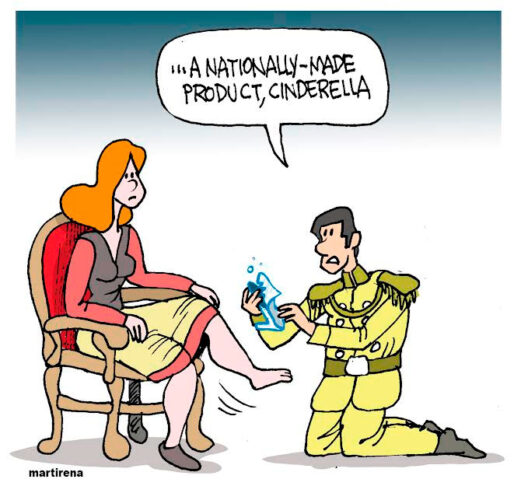She takes them in her hands, examines them carefully, puts her left foot on them, but the curl of her lips in response to the salesman’s question, «Will they be any good?» disappoints her completely, she puts the shoe back on the shelf, clutches her purse in her hand and leaves the store without buying.

Let the Cuban who has not gone through the same situation cast the first stone, because even if he or she is solvent, no one likes to throw away his or her money, especially when it belongs to those who have to save in order to collect a sufficient amount to at least try to cover a shortfall.
It could be considered an irrational act to talk about quality today in Cuba, when the offers in the commercial network are more and more reduced and, in the face of problems to be solved, people buy what they can find.
However, it is necessary to insist on the issue, because if excessive prices were backed by excellence, this would soften the blow to the battered family economies.
The reduction of production of various kinds is a fact, but the available ones, for which there were raw materials -even imported-, energy and labor, are not always the best. As an example, once again the «much talked about bread of the family basket; but beware, it is not the only one, only that the list could be too long and it is not an exclusive deficiency of the state sector.
In the private sector, there are some who are betting on perpetuating bad practices and vices that have been holding back development for several decades; because yes, we are blocked, and no one doubts it, but there is a lot of bungling.
Doing more with less is one of those formulas of dubious validity; it works when it comes to cutting costs in favor of efficiency, but when this is reversed by lowering quality standards, it is just a banal excuse to «balance the numbers» and «meet schedules» with total disregard for the customer or consumer.
Is it ethical to encourage a person to buy something that lacks quality? We urgently need national productions with high standards that are marketed in CUP and whose purpose is to satisfy the needs of the worker and his family, whose income is not subject to remittances or other negotiations.
Acerca del autor
Licenciada en Periodismo (1995 Universidad de Oriente). Trabajó como periodista en Tele Cristal (Holguín) hasta marzo del 2003, directora y guionista de televisión.
Periodista del semanario Guerrillero (Pinar del Río) desde mayo del 2003 hasta la actualidad, corresponsal del semanario Trabajadores en esa provincia desde septiembre del 2020.
Creadora audiovisual y cinematográfica independiente.



